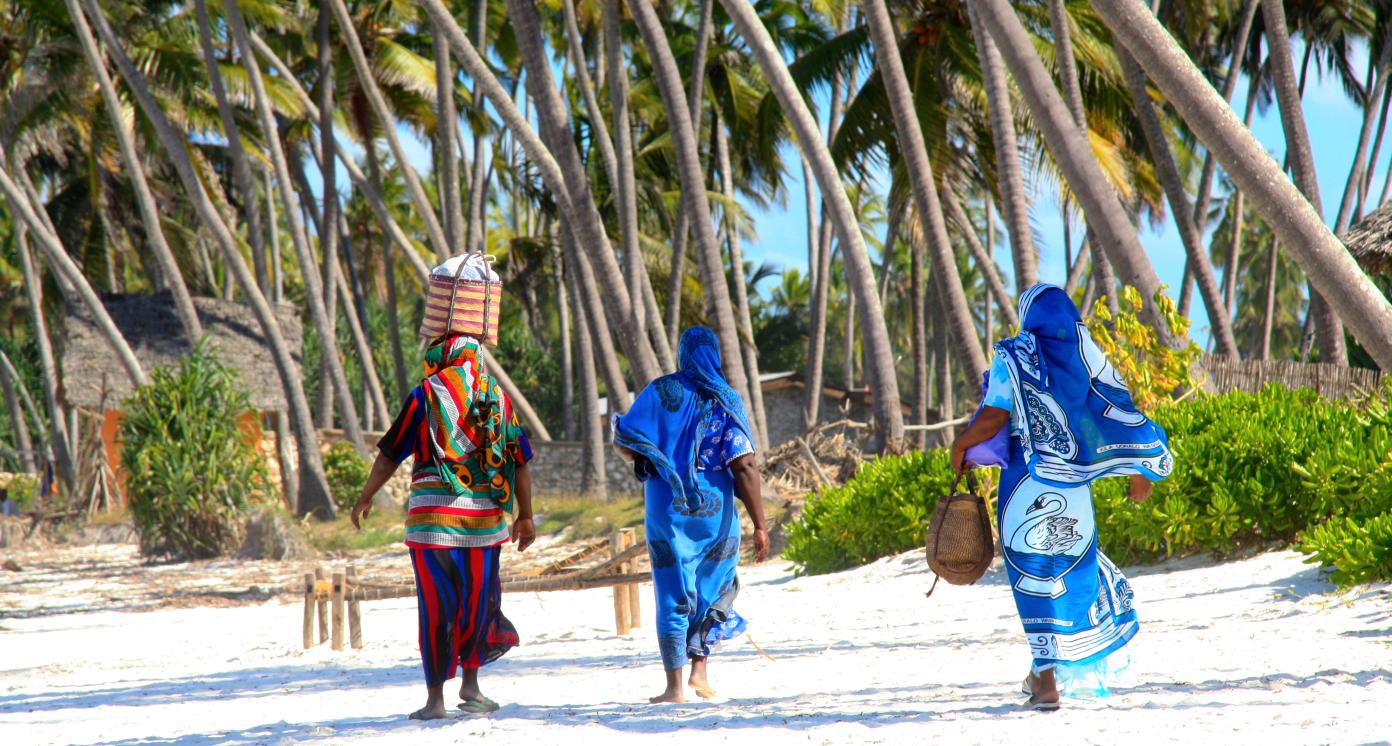Halal-Friendly Tourism Offerings
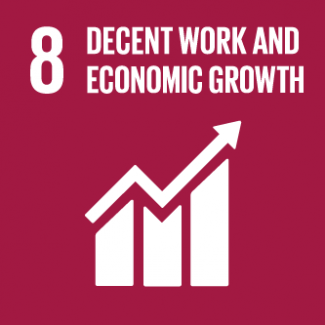
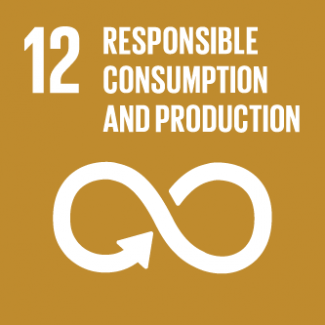
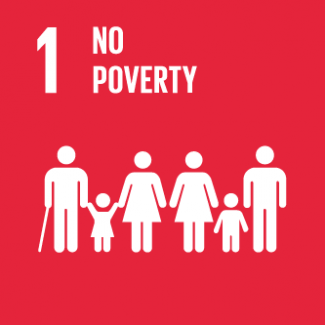
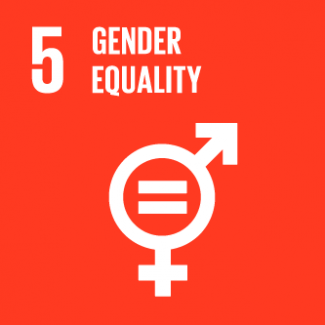
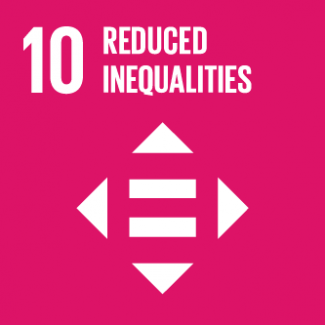
Business Model Description
Set up and operate sustainable and halal-friendly tourism offerings, such as high-end hotels, resorts and guest houses which are customized based on the demands of Muslim travelers.
Expected Impact
Empower the local Muslim community and attract more of a different segment of international visitors, while contributing to the sectoral revenue.
How is this information gathered?
Investment opportunities with potential to contribute to sustainable development are based on country-level SDG Investor Maps.
Disclaimer
UNDP, the Private Finance for the SDGs, and their affiliates (collectively “UNDP”) do not seek or solicit investment for programmes, projects, or opportunities described on this site (collectively “Programmes”) or any other Programmes, and nothing on this page should constitute a solicitation for investment. The actors listed on this site are not partners of UNDP, and their inclusion should not be construed as an endorsement or recommendation by UNDP for any relationship or investment.
The descriptions on this page are provided for informational purposes only. Only companies and enterprises that appear under the case study tab have been validated and vetted through UNDP programmes such as the Growth Stage Impact Ventures (GSIV), Business Call to Action (BCtA), or through other UN agencies. Even then, under no circumstances should their appearance on this website be construed as an endorsement for any relationship or investment. UNDP assumes no liability for investment losses directly or indirectly resulting from recommendations made, implied, or inferred by its research. Likewise, UNDP assumes no claim to investment gains directly or indirectly resulting from trading profits, investment management, or advisory fees obtained by following investment recommendations made, implied, or inferred by its research.
Investment involves risk, and all investments should be made with the supervision of a professional investment manager or advisor. The materials on the website are not an offer to sell or a solicitation of an offer to buy any investment, security, or commodity, nor shall any security be offered or sold to any person, in any jurisdiction in which such offer would be unlawful under the securities laws of such jurisdiction.
Country & Regions
- Zanzibar: Small Islets
- Zanzibar: Pemba
Sector Classification
Services
Development need
The Tourism and Hospitality sector contributes 28% to GDP and is the source of 82% of the foreign exchange earnings and approx. 60,000 jobs in Zanzibar (1, 10). However, dominated by small to mid-sized hotels and guest houses, the sector lacks development of niche markets and the ability to add value and uniqueness to the visitor experience (2).
Policy priority
Zanzibar Development Vision 2050 prioritizes building an integrated, inclusive and sustainable tourism sector, promoting high-value tourism for economic empowerment of locals and prevent foreign capital flight (3). Blue Economy Policy highlights promoting natural and cultural heritages of Zanzibar while preserving them as well (9).
Gender inequalities and marginalization issues
Zanzibar faces higher unemployment for women, wage gap, underemployment, and has fewer women in highly skilled work (4). Almost 48.7% of the total persons in private sector formal employment were directly engaged under Zanzibar’s services sector (5).
Investment opportunities introduction
Before the COVID-19 outbreak, over 500,000 tourists had visited Zanzibar in 2018 and 2019. This indicates a higher possibility by the rising number of foreign visitors. Some of the investment potential in the industry are high-end hotel development, cultural and eco-tourism, halal friendly offerings and marine tourism via private public partnership models (8).
Key bottlenecks introduction
Due to archipelago's nature, sector is very vulnurable to climate change while there is not a common standardization or a sustainable certification of the tourism offerings. Fears over cultural erosion by local communities, ineffective environmental management and leakages of sectoral earning from local economy are some of the key challenges (9).
Hospitality and Recreation
Development need
Number of international visitors reached to 394,185 in 2021, showing 51% increase from 2020 (10). This growing demand creates the need to diversify and strengthen the sectoral offerings as there is a lack of competition of niche tourism products promoting Zanzibar's singularity and a geographical imbalance created by the sector (2).
Policy priority
Zanzibar Tourism Strategic Plan prioritizes facilitating the development and promotion of diversified tourism portfolios such as eco-tourism, sports tourism, cultural tourism, conference tourism and shopping tourism (6). The government encourages private sector on participating in joint financing for MSMEs in tourism sector (7).
Gender inequalities and marginalization issues
Tourism sector operations concentrate mainly on the coastal sides of the islands. This geographical imbalance results in rural populations' isolation from the sector and sectoral opportunities and weak integration among local culture and the lifestyle promoted by the visitors (9).
Investment opportunities introduction
Building or investing in hotels/resorts and facilities for diversified touristic experiences and development of island hopping activities are some of the opportunity areas which would benefit from incentives available for the real estate sector and respond the increasing demand of the sector (8).
Key bottlenecks introduction
Poor standards setting, regulation, monitoring, enforcement, and upgrading for tourism businesses, lack of public-private partnerships, a lack of infrastructure with insufficient capacity to handle combined resident and visitor demands, and poor or absent standards are few of the challenges specific to the tourism sector (2).
Hotels and Lodging
Pipeline Opportunity
Halal-Friendly Tourism Offerings
Set up and operate sustainable and halal-friendly tourism offerings, such as high-end hotels, resorts and guest houses which are customized based on the demands of Muslim travelers.
Business Case
Market Size and Environment
USD 100 million - USD 1 billion
Zanzibar's international visitor amount reached to 394,185 in 2021, showing 51% increase from 2020 (10).
Maldives as an archipelago dominated by tourism sector as well, where halal friendly tourism options are also available, had received over 27,000 Muslim visitors in 2004, increasing this number to 73,000 in 2013 (23).
Indicative Return
20% - 25%
Chumbe Island Coral Park Ltd. has an ROI of 20%(22).
Bera Alanya Beach Resort in Türkiye has a total of 131,389,760 TRY (approx. 6,956,747 USD) company income for the first three quarters of 2022 (26).
Investment Timeframe
Medium Term (5–10 years)
Investments in sustainable and high-end tourism models would breakeven between 7 and 10 years (22).
Ticket Size
USD 1 million - USD 10 million
Market Risks & Scale Obstacles
Capital - Limited Investor Interest
Market - High Level of Competition
Impact Case
Sustainable Development Need
Local communities have weak social cohesion due to increasing sectoral dominance of conventional tourism in the archipelago, experiencing cultural clashes, mainly based on tour operators and hoteliers not enforcing dress and behavior codes for guests and alcohol consumption (13).
Gender & Marginalisation
In Zanzibar, rural Muslim society hessitates to participate in the conventional tourism activities in main touristic areas as there is a cultural gap between the lifestyle promoted by most of the conventional large-sized hotels and the rural Muslim people.
Expected Development Outcome
Halal-friendly tourism offerings will increase the social cohesion between international tourists and local communities as the visitors will be diversified as more tourists will be attracted from Muslim countries.
Gender & Marginalisation
Halal friendy tourism offerings will integrate the local muslims who are isolated from the tourism sector due to religious reasons, to the sectoral workforce.
Primary SDGs addressed

8.9.1 Tourism direct GDP as a proportion of total GDP and in growth rate
Tourism and hospitality sector generated 757.4 billion TZS in 2021, 28% of total GDP of Zanzibar (10).
N/A

12.b.1 Implementation of standard accounting tools to monitor the economic and environmental aspects of tourism sustainability
N/A
N/A
Secondary SDGs addressed



Directly impacted stakeholders
People
Gender inequality and/or marginalization
Corporates
Public sector
Indirectly impacted stakeholders
People
Gender inequality and/or marginalization
Planet
Corporates
Outcome Risks
Halal-friendly tourism offerings will lead to an increase in hotel sewerage outflows due to the increasing tourist numbers and sectoral activity, which may increase the pressure on the infrastructure.
Impact Risks
Halal-friendly tourism offerings may fail to create extended employement opportunities for local Muslim community if the market expansion is limited due to weak promotion and low visibility (14).
Halal-friendly offerings are sustainable and eco-friendly in their essence. Insufficient know-how on environmental management of the operators may harm the impact targeted by the business model.
Impact Classification
What
Halal-friendly tourism offerings will contribute to the sectoral gross domestic product and diversify the tourism offerings and international visitor segments of Zanzibar.
Who
Local communities and the tourism sector will benefit from increased employment opportunities and increased revenue, as well as visitors and local people who have Sharia-compliant preferences.
Risk
Inadequate promotion of the market may deter additional job creation while inefficient environmental management of the operators may harm the sustainability feature of the halal offerings.
Contribution
Halal-friendly tourism offerings will contribute to increase of the range and value of goods and services provided by local communities and create further workforce for local people.
Impact Thesis
Empower the local Muslim community and attract more of a different segment of international visitors, while contributing to the sectoral revenue.
Enabling Environment
Policy Environment
Zanzibar Development Vision 2050: The tourist sector has been identified by the Vision 2050 as one of the priority areas within the pillar of economic transformation. The goal of the Vision is to create a sustainable, integrated, and inclusive tourism sector (3).
Zanzibar Tourism Policy, 2018: Policy underlines the government's commitment to enhance the quality and diversity of Zanzibar’s tourism products and promote tourism as a major drive for economic growth based on "Tourism for All" concept (7).
Zanzibar Blue Economy Policy 2022: In line with the policy's emphasis on community welfare, eco-tourism practices, and integrated coastal zone management, the government is required to safeguard the preservation of traditional norms and cultural values (9).
Financial Environment
Financial incentives: UNDP and UNCDF are leading "Integrated Tourism Recovery and Resilience in Zanzibar", 2,996,000 USD worth project, to create conducive environment for sustainable and inclusive private investment in Zanzibar’s tourism industry (16).
Fiscal incentives: General incentives are exemption from payment of import duty, excise duty, VAT and similar taxes on capital good for any investor. Strategic investors have more comprehensive benefits which consists long-term exemption from duties and tax, resident permit etc (8).
Other incentives: 100% foreign ownership, 33 to 99 years of land lease agreement, employment of expatriates in key positions, 100% allowance for R&D activities (8).
Regulatory Environment
Tourism Act, 2009: The Act provides the institutional framework, administration, regulation, registration and licensing of tourism facilities and activities in Zanzibar (17).
Hotel Levy Act, 1995: In order to provide mechanisms for better administration of hotel and sale taxes on tourist services and related issues, the Act consolidates and ratifies the legislation relating to the imposition and collection of these taxes on tourism-related matters (18).
Marketplace Participants
Private Sector
Zanzibar Association of Tour Investors, Zanzibar Commission for Tourism, Zanzibar Association of Tour Guides, Zanzibar Association of Tour Operators, Zanzibar National Chamber of Commerce, Industry and Agriculture, Halal-Booking.
Government
Ministry of Tourism and Antiquities, Zanzibar Investment Promotion Authority (ZIPA), Zanzibar Employees' Association. (ZANEMA), Off ice of the Chief Government Statistician (for exit surveys).
Multilaterals
World Bank, UNDP, UNCDF.
Non-Profit
SNV-Netherlands Development Organisation, VSO, USAID.
Target Locations
Zanzibar: Small Islets
Zanzibar: Pemba
References
- (1 )World Bank. 2022. Tanzania Economic Update: Empowering Women - Expanding Access to Assets and Economic Opportunities. https://documents1.worldbank.org/curated/en/099850002282226344/pdf/P174894034150b0080a42e081bd547a37b8.pdf
- (2) World Bank. 2019. Zanzibar Tourism Integrated Strategic Action Plan. https://documents1.worldbank.org/curated/pt/993701565250577192/pdf/Zanzibar-A-Pathway-to-Tourism-for-All-Integrated-Strategic-Action-Plan.pdf
- (3) Zanzibar Planning Commission. 2020. Zanzibar Development Vision 2050. https://www.planningznz.go.tz/english/Downloads/current/ZDV2050.pdf
- (4) UN Women. 2021. Zanzibar's Gender Indicators. https://africa.unwomen.org/sites/default/files/Field%20Office%20Africa/Attachments/Publications/2021/08/Infographics%20-%20Zanzibar%20SDG%20Gender%20Indicators.pdf
- (5) UNECA Sub Regional office for Eastern Africa (SROA-EA). 2022. Zanzibar tourism satellite account : estimating the contribution of tourism to the economy of Zanzibar. https://repository.uneca.org/handle/10855/47591
- (6) Zanzibar Tourism Strategic Plan. 2015. Zanzibar Comission for Tourism. http://www.zanzibartourism.go.tz/images/joomlart/documents/STRATEGIC_PLAN_2015.pdf
- (7) Zanzibar Commission for Tourism. Zanzibar Tourism Policy. http://www.zanzibartourism.go.tz/images/joomlart/documents/Zanzibar_Tourism_Policy.pdf
- (8) Zanzibar Investment Promotion Authority. 2022. Zanzibar Investment Guide.
- (9) The Revolutionary Government of Zanzibar. 2021. Blue Economy Policy. Available upon request.
- (10) Office of the Chief Government Statistician. 2022. Zanzibar Statistical Abstract, 2021. https://www.ocgs.go.tz/php/ReportOCGS/ZANZIBAR%20STATISTICAL%20ABSTRACT%202021.pdf
- (11)Future Market Insights. 2022. Halal Tourism Market Snapshot (2022-2032). https://www.futuremarketinsights.com/reports/halal-tourism-industry-overview
- (12) COMCEC. 2017. Muslim Friendly Tourism: Regulating Accommodation Establishments In the OIC Member Countries. https://sbb.gov.tr/wp-content/uploads/2018/11/Muslim_Friendly_Tourism_MFT_Regulating_Accommodation_Establishments_in_the_OIC_Member_Countries%E2%80%8B.pdf
- (13) Revolutionary Government of Zanzibar (RGZ), 2019. Tourism Integrated Strategic Action Plan (TISAP)
- (14) COMCEC. 2016. Muslim Friendly Tourism: Understanding the Demand and Supply Sides In the OIC Member Countries. https://www.sbb.gov.tr/wp-content/uploads/2018/11/Muslim_Friendly_Tourism_Understanding_the_Demand_and_Supply_Sides_in_the_OIC_Member_Countries%E2%80%8B.pdf
- (15) CRM Land Consult Limited. 2019. Micheweni Free Economic Zone Master Plan 2019-2039, Interim Report.
- (16) UNDP. 2022. Fact sheet: Integrated Tourism in Zanzibar 2022. https://www.undp.org/sites/g/files/zskgke326/files/migration/tz/undp-tz-IGfactsheet-IntegratedTourismZanzibar2022.pdf
- (17) Revolutionary Government of Zanzibar. 2009. Zanzibar Tourism Act. https://zanzibarassembly.go.tz/document/the-zanzibar-tourism-act-no-6/
- (18) Revolutionary Government of Zanzibar. 1995. Hotel Levy Act. https://www.zanrevenue.org/resources/view/the-hotel-levy-act-no.1-of-1995-revised-edition-of-2016
- (19) Revolutionary Government of zanzibar. 1996. Environmental Management for Sustainable Development Act. http://www.rttz.org/wp-content/uploads/2013/11/environmental-management-for-sustainable-development-act-19961.pdf
- (20) Bera Alanya. 2021. https://alanya.bera.com.tr/?gclid=Cj0KCQiAn4SeBhCwARIsANeF9DIEGFQEW3f9TQ2dDVRGD_tTMcQYJ1QiiRknj0VbTWl7c3CJE-TRbJsaAuLTEALw_wcB
- (21) Halal Booking. 2022. Villa Tumaini. https://en.halalbooking.com/villa-tumaini/p/308
- (22) UNDP Stakeholder Consultations. 2022.
- (23) Crescent Rating. 2014. Halal Tourism in Maldives. https://www.crescentrating.com/magazine/opinion/3672/halal-tourism-in-maldives.html
- (24) Halal Booking. 2022. Zanzibar Town Halal-Friendly Holidays. https://en.halalbooking.com/halal-hotels-zanzibar-town/l/223
- (25) Wild Secret Safaris. 2023. Halal Zanzibar. https://www.wildsecretsafaris.com/halal-zanzibar/
- (26) Bera Holding A.Ş. 2022. 01.01.2022-30.09.2022 Mid-Term Activity Report. https://beraholding.com.tr/dosyalar/01012022---30092022-donemi-konsolide-faaliyet-raporu.pdf















